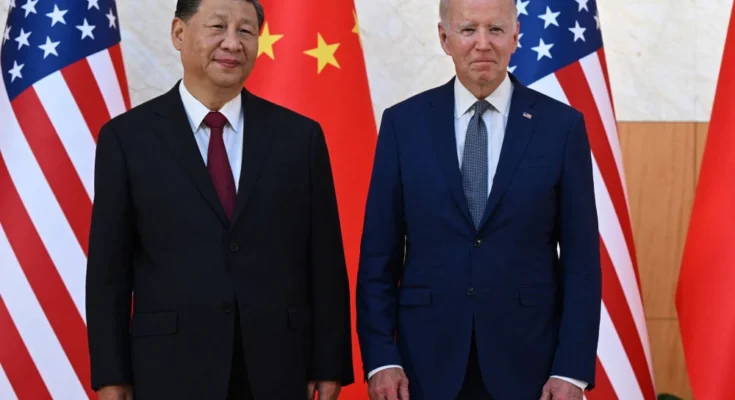WASHINGTON — The United States’ top commander in the Indo-Pacific region spoke with his Chinese counterpart Monday night, according to three U.S. officials familiar with the planning, as the two superpowers try to rebuild military ties in an effort to avoid conflict.
Adm. Samuel Paparo, commander of U.S. Indo-Pacific Command, spoke with Gen. Wu Yanan, the commander of China’s Southern Theater, which is responsible for Beijing’s vast claims over the South China Sea. The call was the first time in years that the two regional military commanders have engaged in a formal conversation.
The Chinese Ministry of Defense also confirmed the call.
During the video teleconference, Paparo emphasized the importance of sustained communication between the two militaries to “reduce the risk of misperception or miscalculation.”
Citing multiple recent “unsafe interactions” between China’s People’s Liberation Army and U.S. allies, Paparo said the Chinese military had an obligation “to comply with international laws and norms to ensure operational safety,” according to a White House readout of the call.
Paparo also urged the Chinese military to reconsider what he said was its use of “dangerous, coercive and potentially escalatory tactics in the South China Sea and beyond,” the readout said.
Both men are relatively new in their roles: Paparo assumed command in May, while Wu was appointed in July. The two commanders had a “constructive and respectful” discussion, the White House readout added, and Paparo noted the importance of continued communication with Wu and the leaders of China’s four other theaters.
Paparo’s predecessor, Adm. John Aquilino, had a standing request to meet with the commanders of China’s Southern Theater as well as its Eastern Theater, whose jurisdiction includes the Taiwan Strait, but China never agreed.
Both the South China Sea and the Taiwan Strait fall under U.S. Indo-Pacific Command’s area of responsibility.
Chinese leader Xi Jinping cut off military communications in 2022 after Rep. Nancy Pelosi, D-Calif., the House speaker at the time, visited Taiwan, a self-governing island democracy that Beijing claims as its territory.
The U.S. and China have been at odds over a number of issues, including the status of Taiwan, China’s stance on wars in Ukraine and the Middle East and its growing aggression in the South China Sea, a strategically important waterway that Beijing claims virtually in its entirety.
Relations reached their lowest point in decades in early 2023, when an alleged Chinese spy balloon appeared over the continental U.S. and was shot down by the U.S. military.
President Joe Biden and Xi agreed to resume high-level military communications at a summit in California in November. Both countries announced plans for a call between their military theater commanders after a visit to Beijing late last month by Jake Sullivan, Biden’s national security adviser.
A senior administration official said re-establishing this specific communication channel between the U.S. and China was a priority on Sullivan’s trip.
The two countries also said Biden and Xi would speak by phone in the coming weeks, which would be their first interaction since April.
NBC News reported last month that the White House is aiming for a meeting between the two leaders in November.
Courtney Kube and Carol E. Lee reported from Washington and Jennifer Jett from Hong Kong.



